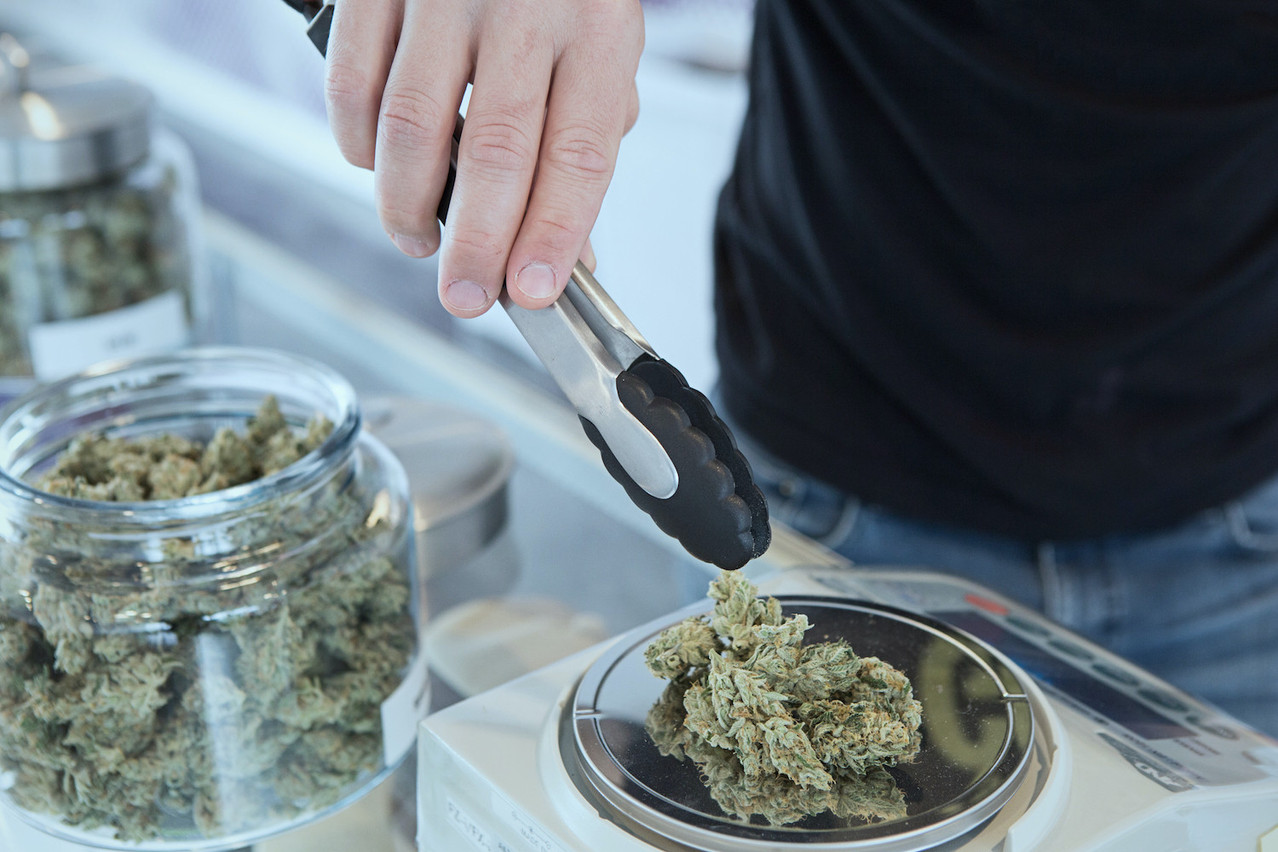The DP-LSAP-déi Gréng coalition in 2018 had pledged to legalise recreational cannabis but the plan ran into numerous hurdles. Not only did the pandemic slow down legislation, but Luxembourg has signed three UN treaties which say cannabis may only be used for medical or research purposes and together form a global drug control framework.
“Cannabis is a reality,” said health minister (LSAP) during a press conference on Friday. “Doing nothing isn’t an option.”
Under a concept adopted by the government on Friday, the government plans to issue two production licences to legally grow the drug. These will supply 14 dispensaries in the country, where consumers over the age of 18 can purchase a maximum of 30g per month for personal use.
The plan is for the government to manage the entire supply chain, from seed to baggie.
Smoking pot in public will remain illegal and the drug won’t be available for sale at coffee shops or so-called social clubs, as is the case in other countries, such as the Netherlands.
“An experiment”
“We’re in the logic of an experiment,” Lenert said. The concept does not present a draft law but merely a “preparatory step.” Up next, the government has requested to present the plan to the European Commission as well as seeking feedback and dialogue with other EU countries implementing pilot projects on the sale of recreational cannabis. These include the Netherlands, but also Germany, Czechia and Malta.
A public survey is set to deliver up to date data on consumption and attitudes towards cannabis and recreational drug use by the end of this year, together with wastewater analyses to detect traces of different drugs, carried out by the LNS national laboratory.
But users shouldn’t expect to see dispensaries pop up around Luxembourg any time soon. The health minister said a draft law to put the concept into action would not be finalised before the October election. “It’s very complex,” she said. “What happens after October is up to the voters.”
It is too early to say how much the government expects to make from the sale of cannabis, but it will have to sell the drug competitively to what’s available on the black market, said justice minister (déi Gréng).
The 1973 law on illegal substances has proven ineffective in curbing drug use and crime, she said. At the same time, the cannabis on the market has increased in THC, its principal psychoactive component, while becoming poorer in quality. “It’s real filth,” said Lenert of the cannabis dealt on the market, calling this a “public health issue.”
Home grown plants
Within reach before parliament breaks for summer, however, is a vote to allow people to grow their own cannabis plants at home.
Luxembourg’s state council had submitted a series of formal oppositions to the draft law submitted to lawmakers. The council’s role is to review all bills and assess whether they are legally sound and in compliance with the constitution and other laws and treaties.
A second draft is now pending the council’s opinion before it can proceed to a vote. Once in force, the law will allow people over the age of 18 to grow up to four cannabis plants per household from seeds, which can be purchased online, for example. Smoking, however, remains banned in public.
“We hope that people will get a better control over what they consume,” said Tanson.
The law also reduces fines for carrying less than 3g of cannabis for personal use, from €251 to €2,500 currently to €25 to €500. A fine with no criminal record of €145 is also possible.
The option to grow cannabis at home will remain available if and when the concept for government-run dispensaries is put into action.
Prevention remains priority
“The whole thing goes hand in hand with prevention,” said Lenert.
“The citizen receives more responsibility,” said education and youth minister (DP). That also means that citizens must be informed about the side effects of cannabis, the risk of addiction and other issues related to drug use.
Already for the next school year, dedicated coordinators to tackle addiction will be recruited for all secondary schools. “Every school is impacted by the presence of cannabis and other drugs,” Meisch said, with actions and school policies to be harmonised across the country.
The aim, he said, is “to make children and young people strong,” so that they are less likely to become addicted, more able to say ‘no’ to peer pressure and have a strong grip on their lives.
“It’s a no-go to promote cannabis among minors,” said Lenert, adding that this would not be made legally available under any of the government plans for users under 18 years of age.
Cannabis is the most-used recreational drug in Luxembourg. Around 7.3% of 15 to 18-year-olds in a report said they had consumed cannabis in the last month. More than a third of 15 to 34-year-olds said they had tried cannabis at some point in their life.
